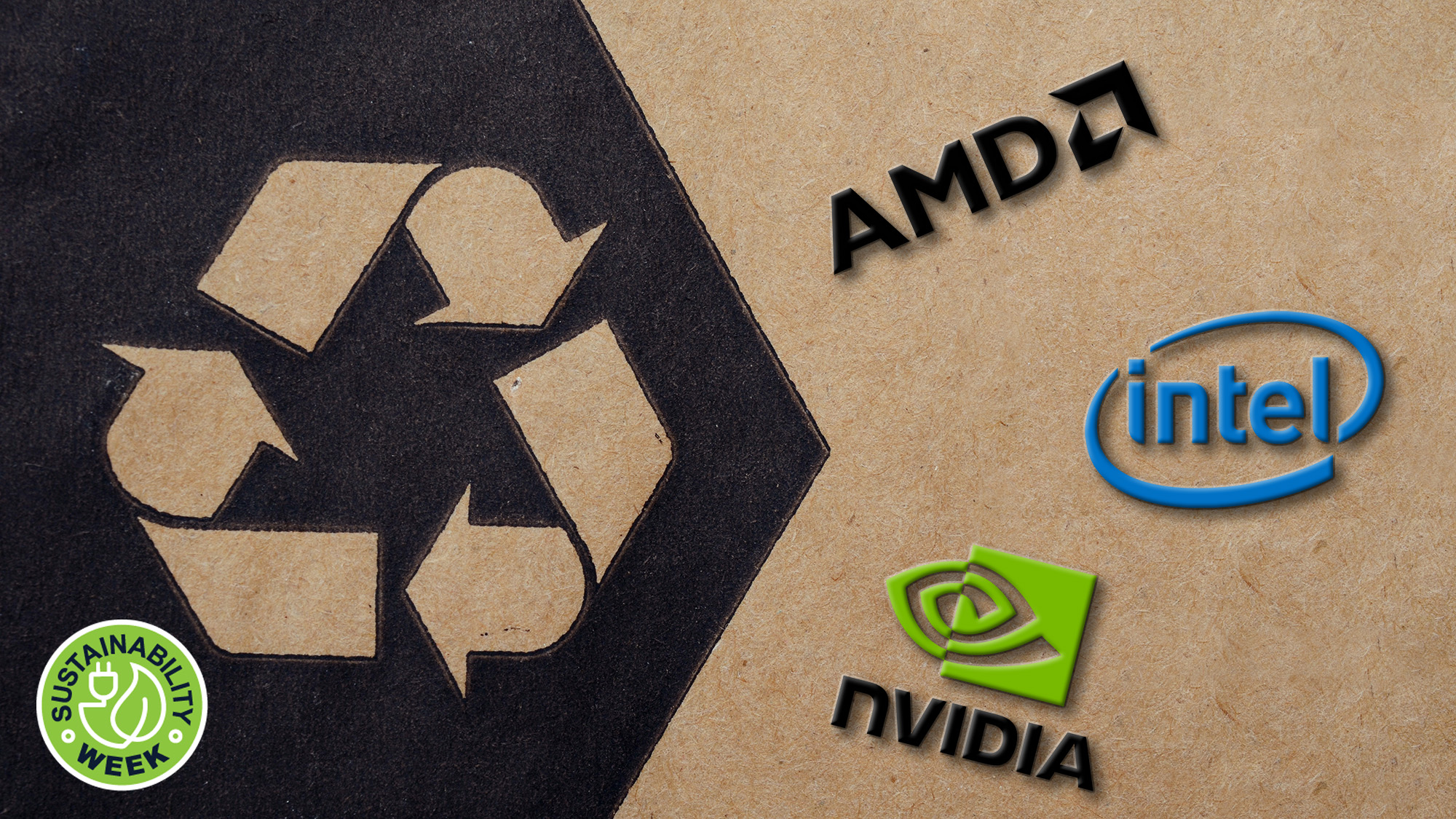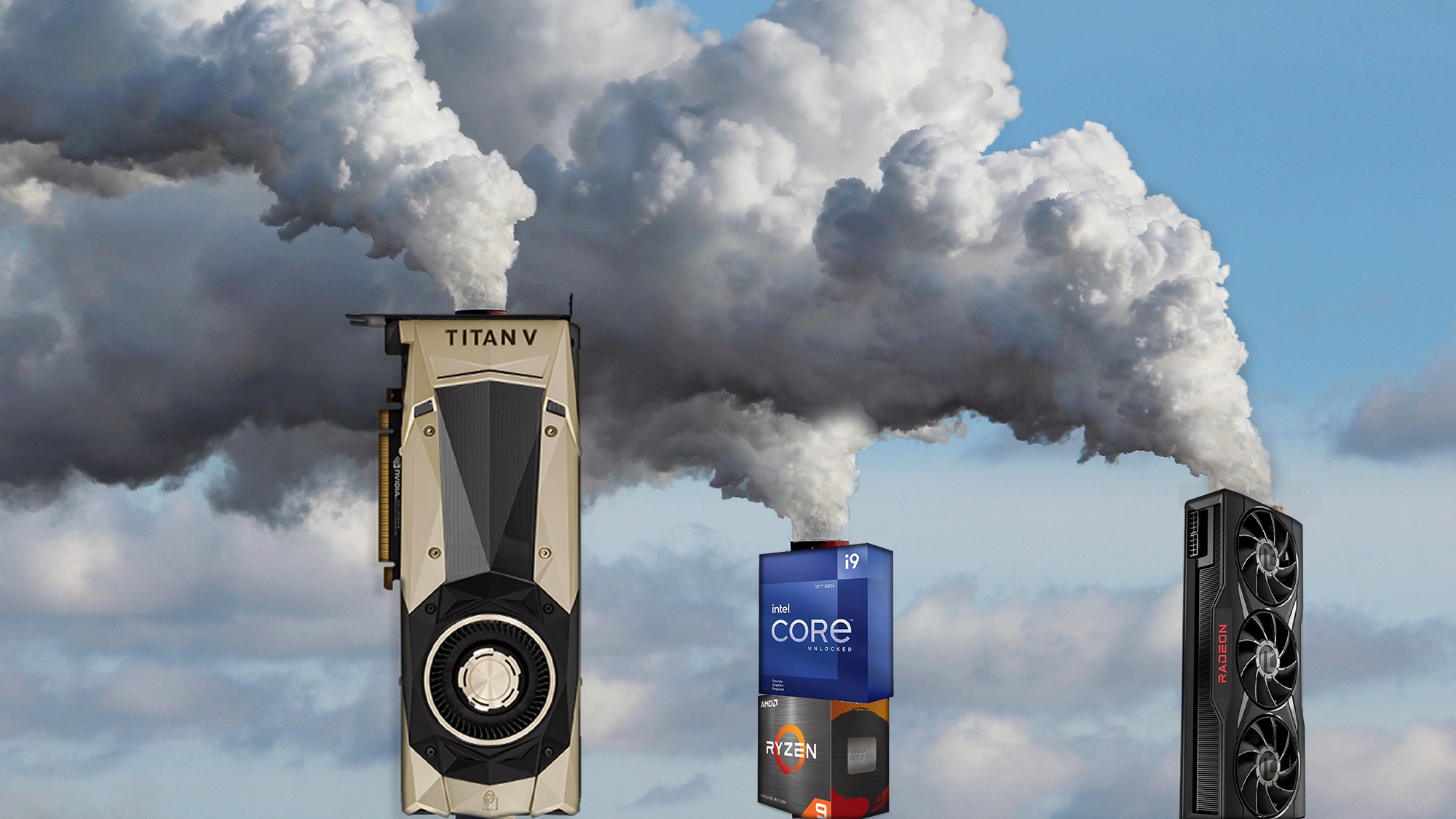It's time for AMD, Intel, and Nvidia to call a truce on the performance arms race and focus on sustainability and efficiency
We don't need this much power, and it's coming at too high a cost

Sign up for breaking news, reviews, opinion, top tech deals, and more.
You are now subscribed
Your newsletter sign-up was successful
Today is Earth Day, and it's as good a time as any to think about the way we use technology and how we can use it better and more sustainably given the myriad challenges it represents to our environment.
Major computer manufacturers like Acer, Apple, Dell, HP, Lenovo, and many others have all started moving towards more sustainable products, and not just in their use of better packing materials that reduce new material use by increasing the amount of post-consumer material in their construction.
Even the computers themselves are starting to use post-consumer materials and manufacturers are expanding opportunities for upgrading the devices to keep them current longer, thereby reducing e-waste around the world.
But one area hasn't seen nearly enough attention: processors, specifically their power usage.
A computer's CPU is the brains of the whole operation, so naturally, it needs a good bit of power to operate at higher levels of performance. This is even more true of dedicated GPU chips in laptops or the best graphics cards used in desktop systems.
And while better power efficiency in laptops is going to be a bigger plus in terms of battery life, desktops have seemingly gone in the complete opposite direction, with Intel, AMD, and Nvidia configured systems drawing a lot of power to run hardware that often exceeds what users need, all so they can be called the 'fastest' or 'most powerful'. It's not a sustainable approach.
We need to start emphasizing efficiency over power

There will be circumstances when a lot of power for a component is necessary to do important work, and I'm not saying that every graphics card needs to have its power consumption halved as a basic rule.
Sign up for breaking news, reviews, opinion, top tech deals, and more.
But for consumers who are barely tapping into the performance that an Nvidia RTX 4080 Super brings to the table, much less what an Nvidia RTX 4090 or AMD RX 7900 XTX offers, you have to ask if this kind of performance is worth the cost in terms of carbon emissions.
And of course, this is only in terms of useful work, like video editing or gaming, and not for something like cryptocurrency mining, which has at best a marginal social utility, and whose cost in terms of energy usage in the aggregate far outstrips any practical benefit cryptocurrency has in the real world (unless you're really into criminal activity or need to launder some money).
Regular old processors aren't immune either, with the current generation of Intel processors soaking up an extraordinary amount of energy (at least in bursts) relative to competitors like AMD and especially Apple.
What you get for that energy draw is some incredible performance numbers, but for 97-98% of users, this kind of performance is absolutely unnecessary, even if users are using the appropriate processor for their needs.
The performance arms race needs to change
Ultimately, AMD, Intel, and Nvidia are locked in an arms race for making the fastest and most powerful processors and graphics cards, and it shows no signs of stopping. Meanwhile, Apple's move to its own M-series silicon has been a major win, both for the company and for consumers.
Apple's chips are based on Arm's big.LITTLE architecture, which is incredibly energy efficient from the ground up, originally having been intended for mobile devices. But now that the architecture is sophisticated enough to be used in laptops and even desktops, the energy efficiency remains while Apple has scored major performance gains over both AMD and Intel and kept energy use down.
If we are going to maintain a livable planet in the future, we must go on an energy diet. Seeing the difference between what Apple's done and what AMD, Intel, and Nvidia aren't doing puts to bed any excuse those three latter chipmakers have for not refocusing on efficiency going forward.
As hard as it may be to hear or accept, these three chipmakers must acknowledge that we don't have a performance problem, we have a sustainability problem. They should turn away from squeezing even more performance out of their hardware that we don't need, and give us the efficiency that is desperately needed, especially when these marginal increases in power are coming at far too high a cost.
Some power users and enthusiasts might not like seeing decreasing power usage while maintaining roughly the same level of performance gen-on-gen, or slightly better performance but far less than with previous generations, but it's what needs to be done, and the sooner everyone acknowledges this and adapts, the better.
You might also like...

John (He/Him) is the Components Editor here at TechRadar and he is also a programmer, gamer, activist, and Brooklyn College alum currently living in Brooklyn, NY.
Named by the CTA as a CES 2020 Media Trailblazer for his science and technology reporting, John specializes in all areas of computer science, including industry news, hardware reviews, PC gaming, as well as general science writing and the social impact of the tech industry.
You can find him online on Bluesky @johnloeffler.bsky.social